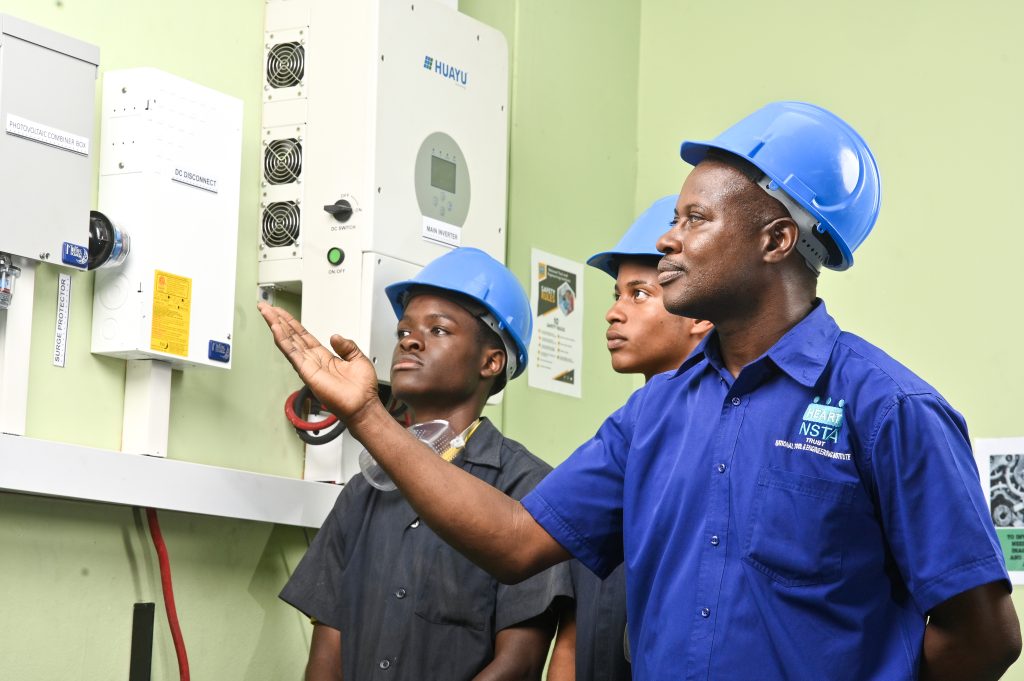Prime Minister Outlines the Evolving Role of HEART NSTA in Building a Workforce for Jamaica’s Future

Prime Minister Dr Andrew Holness has outlined the transformation of the HEART/NSTA Trust into a key driver of workforce development and economic alignment in Jamaica.
Speaking on Friday (June 20, 2025) at the Jamaica National Service Corps (JNSC) Skills Training Closing Out Ceremony, the Prime Minister emphasized that the HEART/NSTA Trust is evolving from being primarily a training institution to becoming Jamaica’s leading workforce development facilitator, aligning skills training with the current and emerging needs of industry.
This shift, said Dr. Holness, is critical to Jamaica’s long-term growth.
“HEART is transitioning from being primarily a skills development and training institution to being the facilitator of preparing a workforce that is aligned to industry needs. So they spend a lot of time on the TVET [Technical and Vocational Education and Training] side, on the training side, with schools, they’re working with the JDF [Jamaica Defence Force] and the CMU [Caribbean Maritime University] and other entities with training. But they are also now working very closely with industry, saying to the industry, tell us what you need and let us craft the programmes to support it,” said Prime Minister Holness.
The Prime Minister explained that this new model is aimed at reducing friction in the labour market where people may have skills but not the ones that match today’s job requirements.
Dr. Holness also noted that some Jamaicans remain unemployed because of outdated training or a lack of certification.
In this regard, Prime Minister Holness made it clear that the JNSC programme is not about enlisting youth into the military, but about creating a disciplined and structured environment for building the next generation of workers, using the Jamaica Defence Force as a platform for personal and professional development.
The Prime Minister stated: “What we have done is to leverage the institutional strength, discipline, and organizational capacity of the JDF in partnership with the HEART Trust NSTA to create a structured environment where youth can be trained to meet the demands of Jamaica’s evolving workforce. In doing so, we are setting a new standard for how governments should approach youth development, not through ad hoc workshops or uncoordinated skills training, but through integrated, demand-driven programmes that link training directly to employment. This is nation-building at work.”
The Prime Minister praised the graduating trainees for their discipline and growth but reminded them that their real test will come when they face challenges.
Dr. Holness emphasized the importance of inner strength.
“Resilience is the ability to absorb the impact of a shock, recover, and recover even stronger. I must confess that resilience is not necessarily a feature that I see common in the generation of youngsters coming up. And in a sense, it is a result of just how our society has been evolving with the state of our value system. And that is why we have to invest heavily in programmes like these to make character an important part of training. The ability to face hardships and not to complain about them. The ability to rise again even after a disaster,” said Prime Minister Holness.
Looking ahead, the Prime Minister shared that the next JNSC cohort will begin in October 2025, with plans to scale up both participation and programme offerings. Dr. Holness also called on businesses of all sizes, not just large corporations, to partner with HEART and help shape a workforce that meets real economic demands.
In the meantime, the Prime Minister encouraged the youth of Jamaica to “stay rooted, build your country, and believe in the promise of home.”
“Let us build our own country. Let us choose our country. Because when all is said and done, Jamaica is the homeland. Let us build our homeland.”